In this farm diary, author Maggie MacKellar writes about the cycle of the seasons and the joy of a daughter coming home.
PHOTOGRAPHY FRED AND HANNAH
Sign up to our mailing list for the best stories delivered to your inbox.
"I spent the day anticipating her arrival. I’d climbed the stairs to her attic room in the early morning and made up her bed with flannelette sheets."
WORDS MAGGIE MACKELLAR PHOTOGRAPHY FRED AND HANNAH
I spent the day anticipating her arrival. I’d climbed the stairs to her attic room in the early morning and made up her bed with flannelette sheets. Outside the world was white with frost and in the attic I could see my breath. I picked some jonquils and popped them in a vase beside a pile of carefully chosen novels. She has packed up her life and is coming home for a two-week holiday before starting her final year of clinical rotations to become a fully fledged vet. She is bringing her beautiful grey warmblood mare home to have a foal and, perhaps even more exciting, she has found me a horse and brought him, too.
When they finally arrived I hugged her tight. She’d been travelling for 24 hours with a night on the boat and one stop in the early morning to water the horses and let them stretch their legs before loading them again and driving the final hours home. She dropped the tailgate of the float and there in the back is my new horse, Frank. He turns his head and looks at the bright world. She unloads him and hands his leadrope to me. He’s only young but he doesn’t fidget, just breathes me in, and I him, and then drops his head to crop the grass. He’s a plain brown horse, but there’s something about his eye, his attitude, that had convinced my daughter he was the one for me. We put the two horses in the paddock and watch as they walk and roll. I pinched myself: a horse of my own, grazing on a carpet of green grass so thick there is no hint of the brutal dust bath it was only two years ago. It feels like a fantasy.
This year we’ve had an autumn break, a wet winter and now the promise of spring is sitting on the horizon. Our ewes are out in the paddocks undisturbed, leading up to the beginning of lambing. There’s no clatter of the tractor pulling the feed cart out to the ewes, no clouds of dust, or boggy waterholes. The land is soft and green. It feels like a different world to the one I had captured in my diary during the drought of 2018–19.
Then, we’d had no rain in the autumn or winter. J was feeding sheep every second day and in the countdown to spring and lambing we were tense with worry. Sitting here now, on the other side of the drought, and reading back over my diary I realise that even in the brutal season I was finding moments of hope, and learning to see the world in more complex layers than the unfolding catastrophe.
Wake to a frost. Stoke the fire. Boil the kettle, grind the coffee beans, let the dogs out and in the quiet dark I catch up on the work I did not get done yesterday.
When the sun is up we head over to the yards. A cast ewe we had found yesterday — her enormous lamb, which we had pulled from her centimetre by centimetre, stuck fast — has had a prolapse. The lamb, with its head swollen from the trauma of its birth, is still alive. Yesterday I could not get it to suck. Its tongue was too thick, but it was so big and strong I thought it would live, and it has. But its mother is too busted to heal. Often if we can get them fast enough we can save a prolapsed ewe. J is adept at cleaning the expelled uterus and pushing it gently back. We keep the ewe quiet and in a few days there is no sign she has ever had a prolapse. But not this one. J shoots her and I’m grateful we could end her suffering quickly. The lamb, a crossbred of course, is one of the biggest newborns I’ve ever seen. He looks at me expectantly; his swollen head has shrunk to a more normal size, but he’s a monster. Bizarrely, he too is a product of the drought. His mother was probably a greedy feeder, pushing weaker ewes off the lick, getting more than her share and growing a lamb too big for her to birth.
“Can’t win em all,” J says, as we head out on the lambing run.
We find a ewe cast with a stuck lamb. The lamb is dead, but the ewe has a beautiful udder so we take her home for me to try to foster the enormous lamb onto.
We leave the ewe in the yards to recover and walk back to the house for a cuppa on the verandah in the sun. It’s a moment of peace I treasure. The lawn is dry, we have no water to give it a kick start, but this sheltered spot, protected from the bitter westerly wind, is a haven.
Back at the yards I have absolutely no luck. The big lamb will not suck from its foster mother. I try everything in my “getting a lamb to suck” play book. I can feel my nerves thinning, the frustration building.
I pick up the monster lamb and take it over to the house. I’m not ready to give up on it. We’ve lost its mother and, besides, I can’t walk away. The drought is cruel in unexpected ways and my arms ache with the weight of him. I put him in the pen by the fire and mix up some milk. If I can get his suck reflux going he might turn the corner. It is slightly absurd: he’s so big it’s hard to treat him like a newborn and yet this is the treatment he needs. I wrap him in a warm towel and give him 10 minutes with the bottle. I move the teat in and out of his mouth, rub his flanks, pinch his tail. The bugger will not suck. In the end I pour some colostrum down his throat, rub him vigorously and put him in the pen.
The big lamb survives the night and with each forced feed is getting a stronger suck reflex. Much to my annoyance he now has a name. I never give lambs names. But before I can put a halt to it J starts calling this lamb Elvis. I hold up my hand — “don’t start this” — and he laughs: “De’s such a fat dude”.
I don’t want this lamb as a poddy lamb. If he’s raised by me, then he will never go on the truck and I don’t need or want more pets. If I can graft him onto a ewe he will grow into a super fat lamb. It’s a juggle. We are running a business. One part of our business is to feed people. I’m proud of how we look after our stock, proud of what we do, of the lambs we raise. But I don’t give names out for a reason. Elvis has to find a mother.
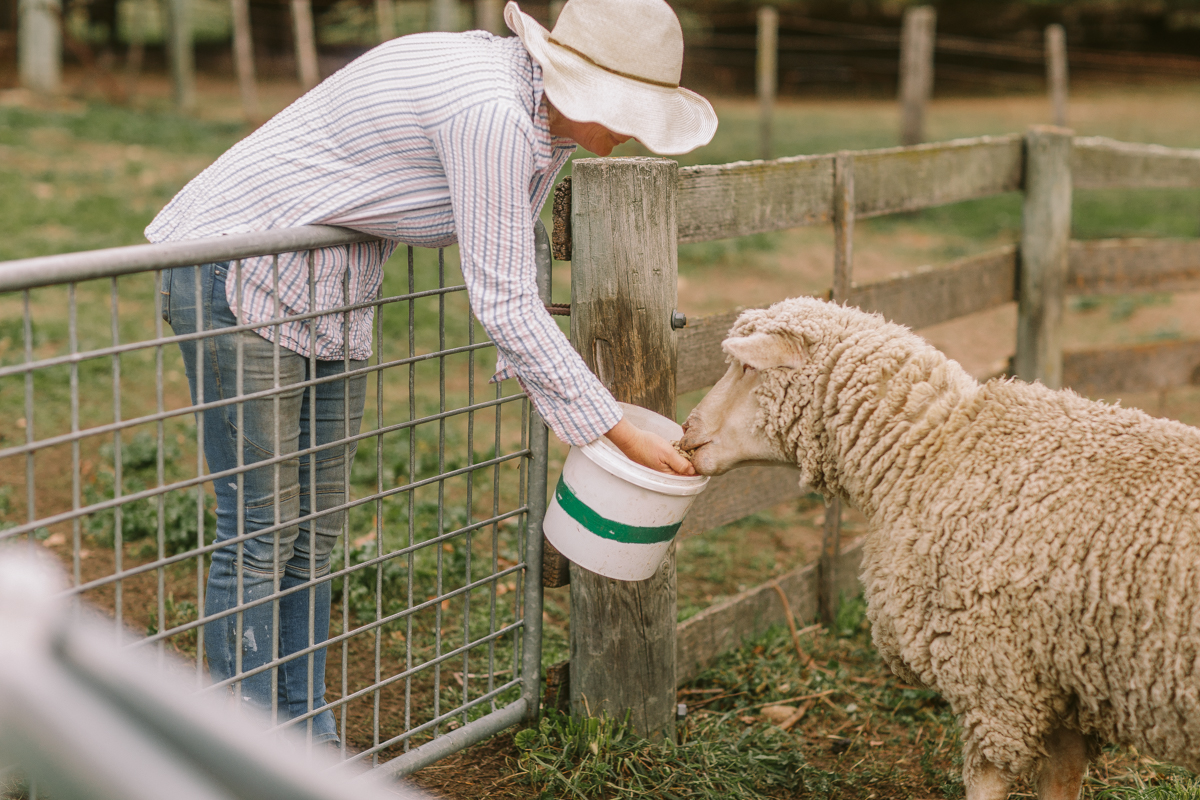
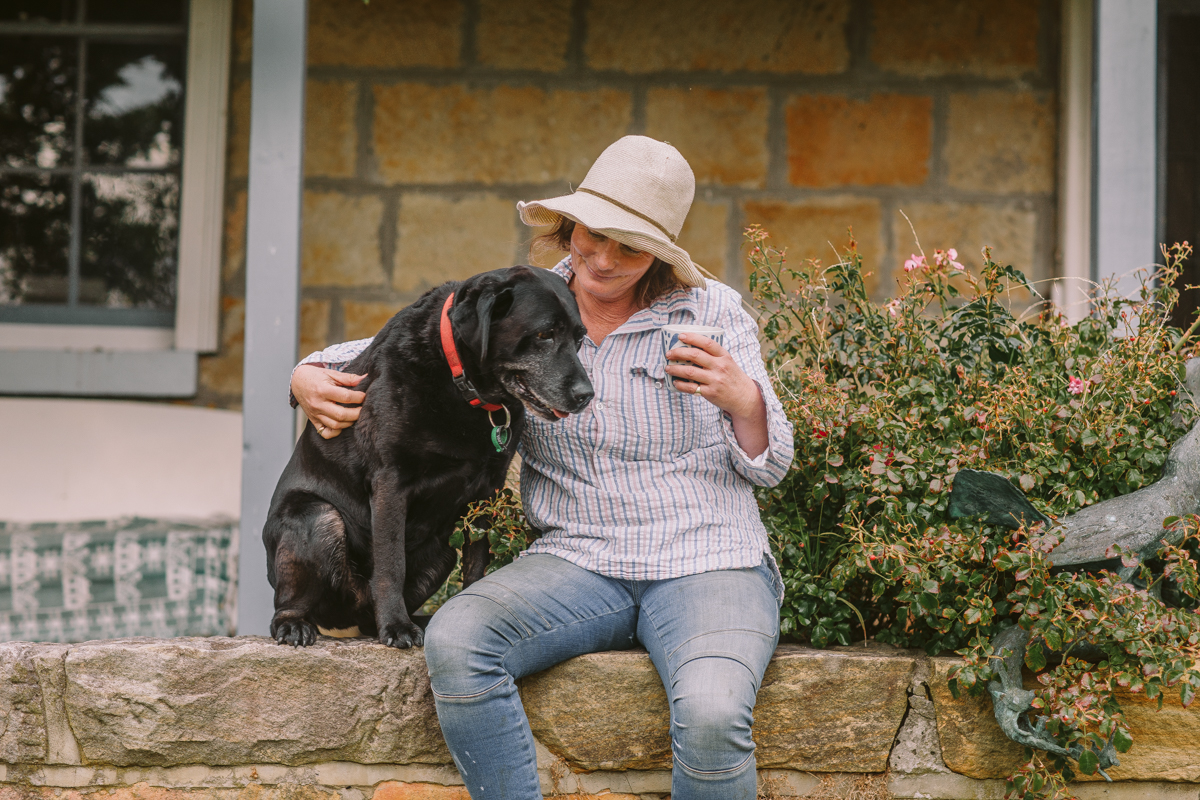
“Losing dad gave me enormous perspective. It taught me that when opportunities come you grab them with both hands and you make the most of them.”
I take the lamb not called Elvis over to the yards and put him in with his foster mother. He’s used to the smell of me now and he follows my fingers down to her swollen bag of milk. I move her against his mouth and as he nibbles my fingers I slide her teat into his mouth. He starts to suck and I don’t move but stand frozen over the ewe whose lamb never lived and the lamb whose mother died giving him life. In less than a minute something clicks in his brain and he drops to his knees to get a better angle to suck. The ewe gulps, a sign she is letting her milk flow. Elvis, who will no longer be called Elvis, shakes his tail as the milk froths at his mouth.
So much of this work is taking the time to stand and watch. I know bigger farms don’t have time to do this. But I do. I lean against an old tree stump on the edge of the yards. If I stay still the sheep accept me as part of their world. They drop their gaze, they shrink back into themselves. Time pools at my feet. A kookaburra, whose territory is the sheep yards, lands on a fence post near me. It cocks its head, opens its great beak and with one eye on me tilts its head back and shouts, “She’s here! she’s here!” and I say, “Oh, be quiet, everyone knows.” The bird spreads its wings and pushes up into a loop of air before dropping to the other side of the fence to hunt for the small lizards that sun themselves on the timber palings.
Here, amongst the wounded, the maimed, the vulnerable, the reluctant, the anxious, life beats on.
How far away from the whirl of our natural lives we’ve got in our suburbs and cities. We’ve forgotten we are animals too. We think we can somehow move through the world without being part of it, as if we are somehow not susceptible to the same shifts of fate, the same pressures of life and death as a pregnant ewe, an orphan lamb, a hungry kookaburra, an opportunistic sea eagle. Leaning against the stump, I wonder at all the things I don’t see and hear spoken in a language that remains just out of my grasp; a murmuring that’s there, but shuts down when I, the outsider, blunder into it. Or even worse, when the world around me is shouting and I move through it deaf and blind.
Only yesterday on my way to feed the horses I walked unheeding and unhearing through the still afternoon. At the sight of me the old retirees flung themselves into a gallop. They could see I was carrying buckets and already they were tasting the crunch of grain between their teeth, the goodness of it swelling in their bellies, warming them from the inside out. But as they neared the fenceline they both propped and stopped still. The old grey pony snorted so loudly the sheep on the far side of the paddock lifted their heads in alarm. Both horses circled. They had their heads flung up, right at the top of their necks; they’d come close and then spin away. I could not see what they were so uptight about.
Had a piece of machinery been moved? Had the sky changed colour? Was there something dead? What was I missing? I tipped the grain into their feed bins and the want of oats was stronger than whatever they were afraid of, so they crept close. But their skins twitched; the air was full of words, none of which I understood. Just as I thought they would drop their heads and feed they both bolted.
A great crack, like a cannon exploding, sounded behind me. I jumped and turned to see a branch fall from a tall gum tree 200 metres from where we stood. There was not a breath of wind. The horses, who had turned and galloped before the limb had fallen, now stood staring at the tree. Then, quite calmly, they lowered their heads, shrank back into themselves and trotted towards me to plunge their noses into the golden flakes of oats.
I felt unplugged. My senses were so dull. I had missed a whole shouted conversation between the tree and the horses. I had stood between them, deaf and dumb. An interloper, I walked home past the fallen limb.
Leaning against the hard wood of the grey stump and looking over the motley collection of ewes and lamb, I wonder at all that I miss.
It’s a dangerous question, but a good one. Lambing brings life and death to the surface. It forces me back to the familiar place of being hyper-alert, the vigilant watcher. If I am to learn anything from this season, it has to be to hold life lightly.
I look at the kookaburra and say, “I didn’t hear the creaking of a breaking tree. I didn’t save the broken ewe. But I’m open, I’m trying.”
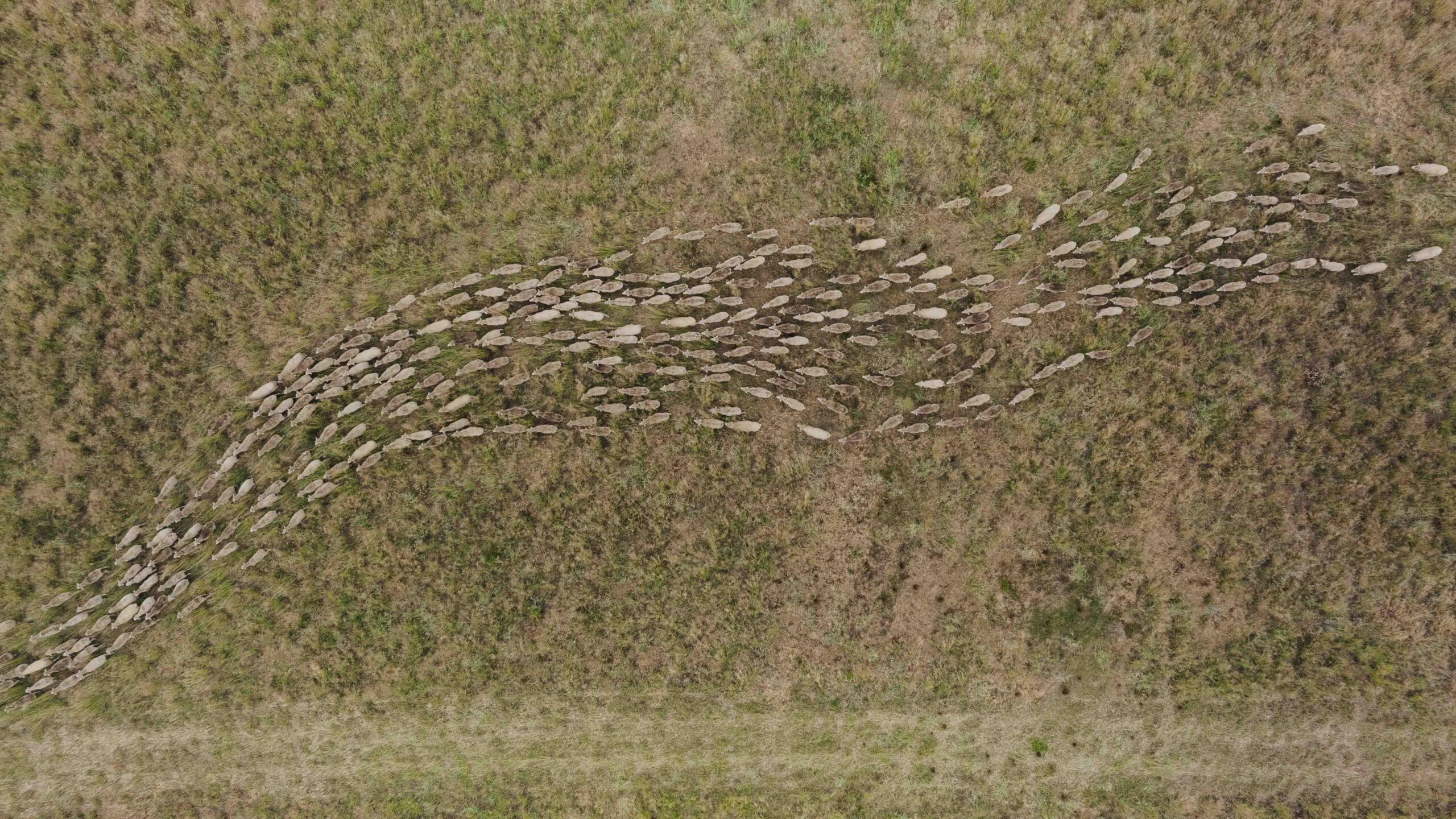
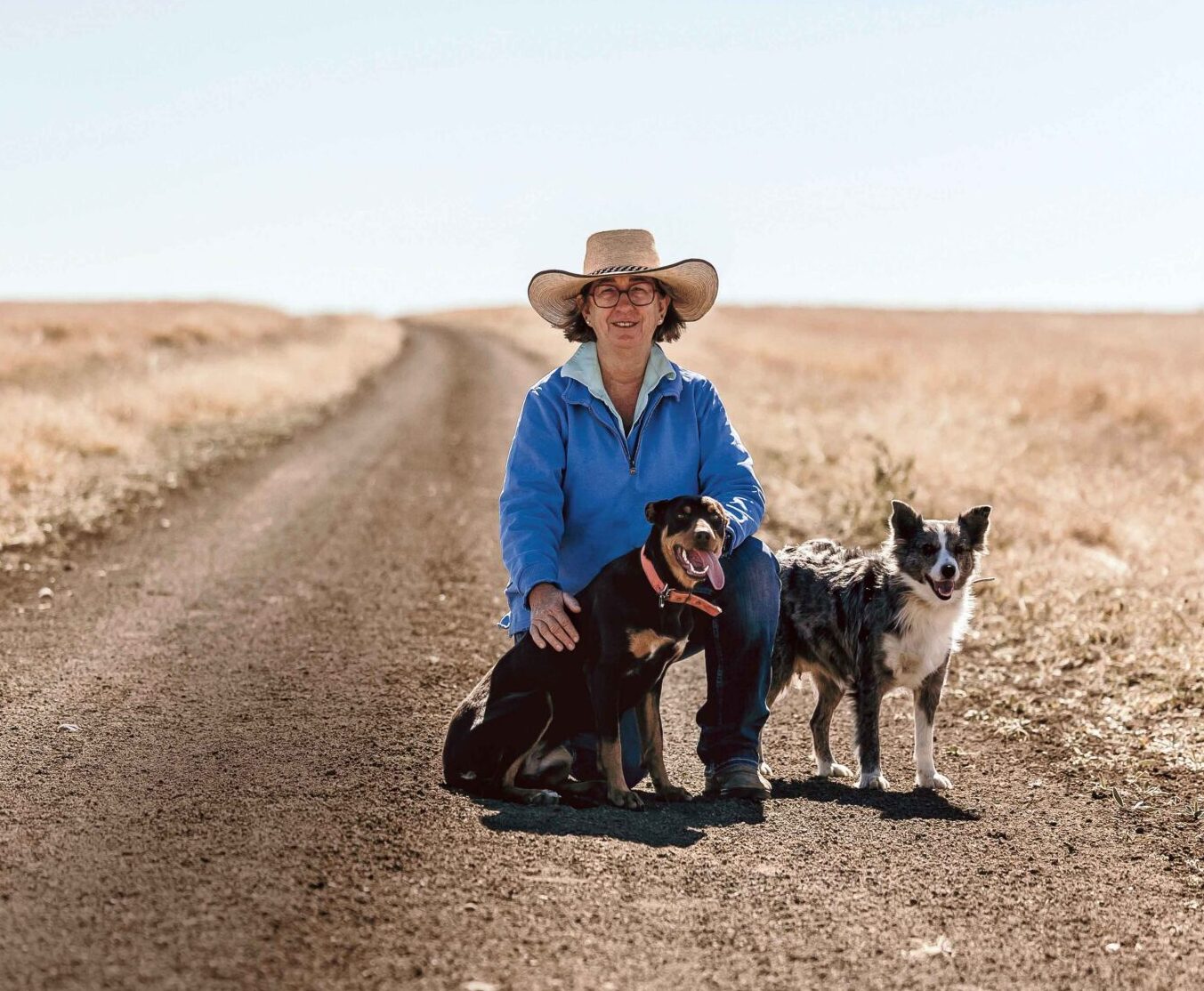
In her youth, she struggled to find her place. Now, Louise Martin knows exactly where she needs to be: in Tambo, Queensland, making sure rural children get the education they deserve.
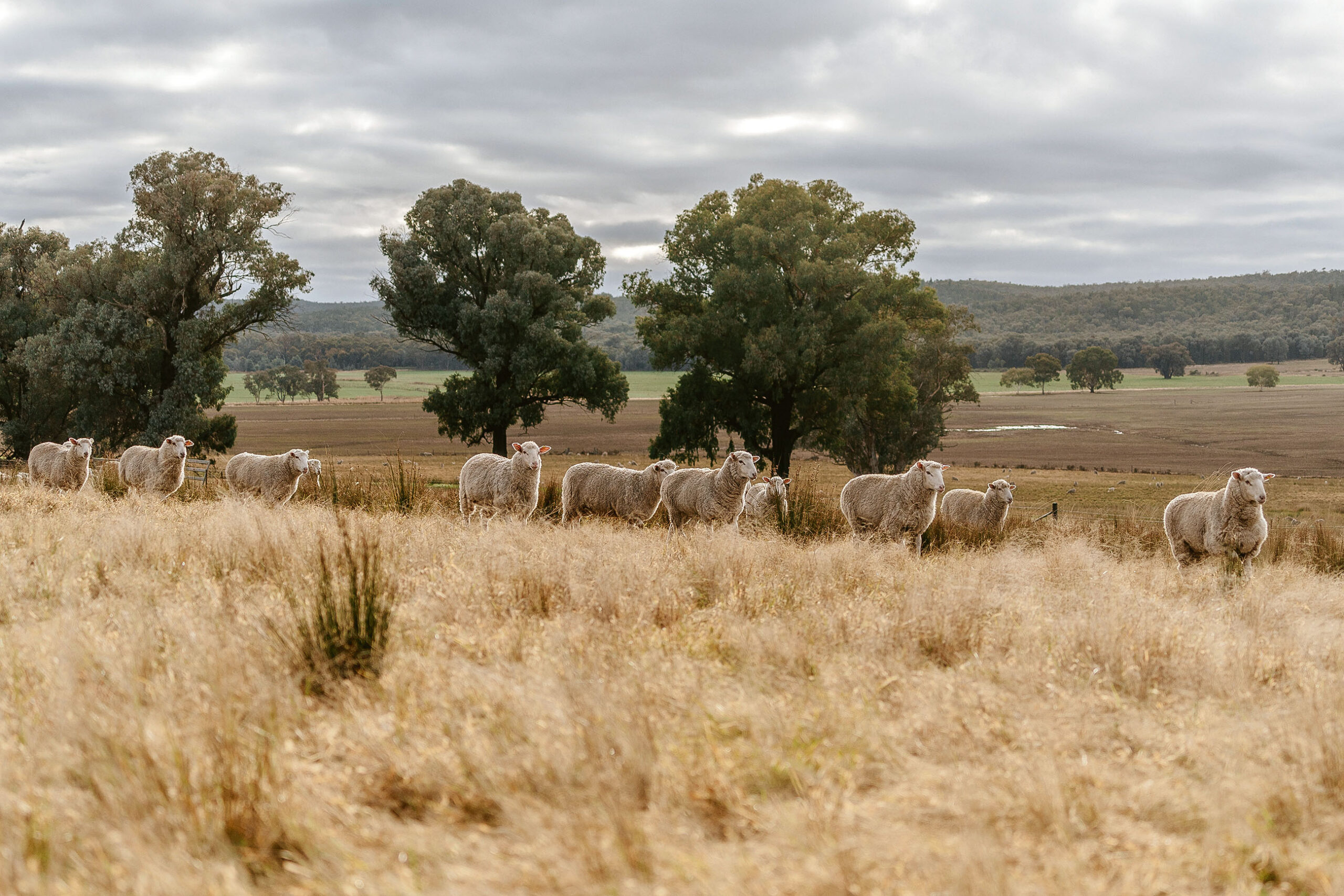
Writer and photographer Alexandra MacAlpine finds ways to hold onto moments of peace amid the busyness of station life.